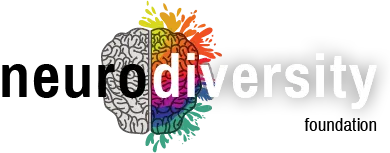Connect With Us
50 Common Traits of Autism & Neurodivergent Behavior
While every individual with autism spectrum disorder (ASD) is unique, research has identified some common characteristics shared by many people on the autism spectrum. Keep in mind that not everyone will exhibit all of these traits, and individuals may vary significantly from one another.
Sensory and Motor Characteristics
Sensory sensitivities: Being overwhelmed by certain sights, sounds, smells, tastes, or textures.
Hyper- or hyposensitivity : Overly sensitive or insensitive to sensory inputs.
Tactile defensiveness: Avoiding physical touch due to discomfort or distress.
Motor difficulties: Struggling with coordination, balance, or movement.
Fidgeting or restlessness: Engaging in repetitive movements or having trouble sitting still.
Clumsiness: Experiencing frequent accidents or injuries due to motor difficulties.
Gait disturbances: Exhibiting unusual walking patterns or speeds.
Swallowing difficulties: Having trouble swallowing or experiencing gagging episodes.
Eye contact avoidance: Avoiding eye contact or having difficulty maintaining it.
Posture and balance issues: Struggling with posture, balance, or spatial awareness.
Communication Characteristics
Delays in language development: Experiencing delays in speech or language skills.
Literal interpretations: Taking things literally without understanding implied meanings.
Difficulty with sarcasm: Struggling to understand and recognize sarcasm.
Asking repetitive questions: Repeating questions due to difficulty comprehending answers.
Preferring written communication: Preferring written communication over verbal interactions.
Delays in initiating conversations: Experiencing difficulties starting or maintaining conversations.
Struggling with small talk: Finding it hard to engage in casual, everyday conversations.
Difficulty understanding tone and nuance: Struggling to comprehend subtle tones and nuances of language.
Preferring structured communication: Preferring clear, structured, and predictable communication.
Avoiding social interactions due to anxiety: Avoiding social interactions due to anxiety or fear.
Executive Functioning Characteristics
Difficulty with organization: Struggling with planning, organization, and time management.
Executive function deficits: Experiencing difficulties with executive functions like working memory, attention, or problem-solving.
Struggling with multitasking: Finding it hard to perform multiple tasks simultaneously.
Delays in completing tasks: Experiencing delays in completing tasks due to difficulty prioritizing and organizing.
Difficulty with sequencing events: Struggling to understand and follow complex instructions.
Preferring routine: Preferring predictable, structured routines over unexpected changes.
Difficulty adapting to change: Struggling to adapt to sudden or unexpected changes.
Struggling with impulse control: Finding it hard to control impulses or regulate emotions.
Difficulty setting goals and priorities: Experiencing difficulties setting goals and prioritizing tasks.
Struggling with self-monitoring: Finding it hard to track progress, reflect on actions, or make adjustments.
Social Characteristics
Avoiding social interactions due to anxiety: Avoiding social interactions due to anxiety or fear.
Difficulty initiating relationships: Experiencing difficulties starting and maintaining friendships.
Struggling with empathy: Finding it hard to understand and share the feelings of others.
Preferring solitary activities: Preferring solo activities over group participation.
Difficulty understanding unwritten social rules: Struggling to comprehend implicit social cues and expectations.
Experiencing difficulties with emotional regulation: Having trouble managing emotions, especially in high-pressure situations.
Struggling with nonverbal communication: Finding it hard to understand and interpret nonverbal cues like body language.
Difficulty understanding cultural nuances: Struggling to comprehend cultural differences, customs, or traditions.
Preferring formal relationships: Preferring structured, formal interactions over informal relationships.
Experiencing difficulties with assertiveness: Having trouble expressing needs, desires, or boundaries in a clear and assertive manner.
Interests and Behaviors
Intense interests in specific topics: Experiencing intense and focused interests in particular subjects or activities.
Engaging in repetitive behaviors: Participating in repetitive actions, like hand flapping or spinning.
Collecting items related to special interests: Gathering objects or materials connected to specific interests.
Struggling with flexibility: Finding it hard to adjust plans or expectations due to rigidity.
Difficulty understanding humor: Struggling to comprehend and appreciate jokes, sarcasm, or irony.
Preferring predictable routines: Preferring structured routines over spontaneous events.
Experiencing difficulties with self-care: Having trouble maintaining personal care, hygiene, or health habits.
Struggling with impulse control in shopping: Finding it hard to resist buying unnecessary items due to impulsivity.
Difficulty understanding the concept of time: Struggling to comprehend and manage time effectively.
Experiencing difficulties with understanding and following instructions: Having trouble comprehending and executing complex instructions.
PROGRAMS
PLATFORMS
ND FOUNDATION
PARTNERSHIPS
LEGAL
Copyright 2025. Neurodiversity Foundation. All Rights Reserved.








